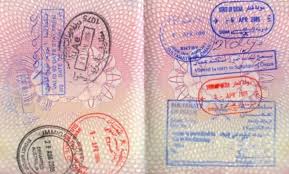How to Extend Indian Visa: A Comprehensive Guide

If you find yourself needing to extend your stay in India, understanding the process of how to extend an Indian visa is crucial. Whether you’re a tourist, a business traveler, or in India for other purposes, extending your visa can help you continue enjoying your time or fulfilling your commitments. In this guide, we’ll explore the steps, requirements, and tips for extending your Indian visa, ensuring you stay compliant with Indian immigration laws. How to extend Indian Visa
Understanding Indian Visa Extension
Extending an Indian visa involves several steps and requires adherence to specific regulations. The Indian government allows for visa extensions under certain conditions, which vary depending on the type of visa you hold and your specific circumstances. It’s important to start the process well in advance of your visa’s expiration date to avoid any legal issues or complications.
Types of Visas and Eligibility for Extension
Before you apply for an extension, it’s important to understand the type of visa you hold and its eligibility for extension. The major categories include:
- Tourist Visa: Typically, a tourist visa is valid for six months. Extensions are generally not granted for tourist visas, but in exceptional cases, you might be allowed an extension if you can prove extraordinary circumstances.
- Business Visa: Business visas are often extendable. The extension process usually requires proof of ongoing business activities and may involve providing additional documentation.
- Employment Visa: If you hold an employment visa, you can usually apply for an extension provided your employer supports the extension request. You’ll need to submit documents such as a new employment contract or proof of continued employment.
- Student Visa: Student visas can be extended based on the duration of your academic program. You will need to provide proof from your educational institution and meet other specific requirements.
- Medical Visa: Extensions for medical visas are possible if you can provide a medical certificate indicating the need for continued treatment.
Steps to Extend Your Indian Visa
- Determine Eligibility: Review the requirements for extending your specific type of visa. Ensure that you meet all the criteria before starting the application process.
- Prepare Required Documents: Gather all necessary documents, which may include:
- A copy of your current visa
- Passport with at least six months validity
- Recent photographs
- Proof of the purpose of your extended stay (e.g., a letter from your employer, educational institution, or medical facility)
- Financial statements to show you can support yourself during the extended stay
- Visit the Foreigners Regional Registration Office (FRRO): You’ll need to visit the FRRO office or the Regional Registration Office (RRO) in your area. You can also check if an online extension option is available through the Indian government’s visa extension portal. Indian Visa for Azerbaijan Citizens
- Submit the Application: Fill out the visa extension application form accurately. Submit it along with all the required documents. Ensure you pay the necessary fees for the extension processing.
- Await Processing: The processing time for visa extensions can vary. During this time, you may be required to attend an interview or provide additional information.
- Receive Your Extended Visa: Once approved, you will receive your extended visa. Make sure to check the new validity dates and any additional conditions attached to the extension.
Tips for a Smooth Extension Process
- Apply Early: Begin the extension process well before your current visa expires. This helps prevent any gaps in your legal status and avoids potential fines or penalties.
- Stay Informed: Regulations and procedures can change. Always check the latest guidelines from the Indian Ministry of Home Affairs or the official Indian visa website.
- Keep Records: Maintain copies of all documents submitted and received during the extension process. This can be useful in case of any discrepancies or issues.
- Seek Professional Help: If you’re unsure about the process or face difficulties, consider consulting an immigration lawyer or a visa consultant who can provide guidance specific to your situation.
Common Challenges and Solutions
- Delays in Processing: Visa extensions can sometimes be delayed. To mitigate this, apply as early as possible and regularly check the status of your application.
- Insufficient Documentation: Ensure you provide complete and accurate documentation. Missing documents can lead to delays or rejection of your application.
- Compliance Issues: Always adhere to Indian immigration laws. Overstaying your visa or providing false information can result in legal consequences.
Conclusion
Extending your Indian visa is a straightforward process if you understand the requirements and follow the correct steps. By preparing the necessary documents, applying early, and staying informed about current regulations, you can smoothly navigate the extension process and continue your stay in India without issues. Whether you’re extending a tourist, business, employment, student, or medical visa, the key is to comply with the rules and provide accurate information to ensure a successful extension.
